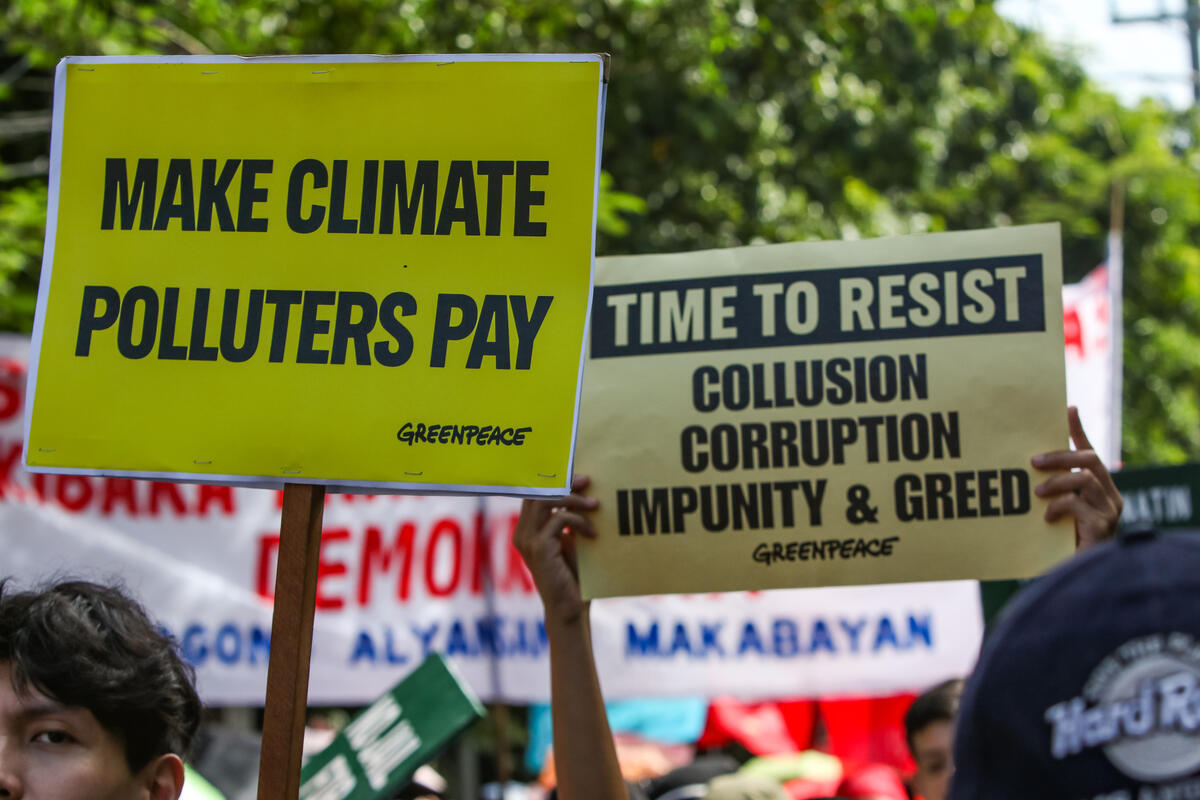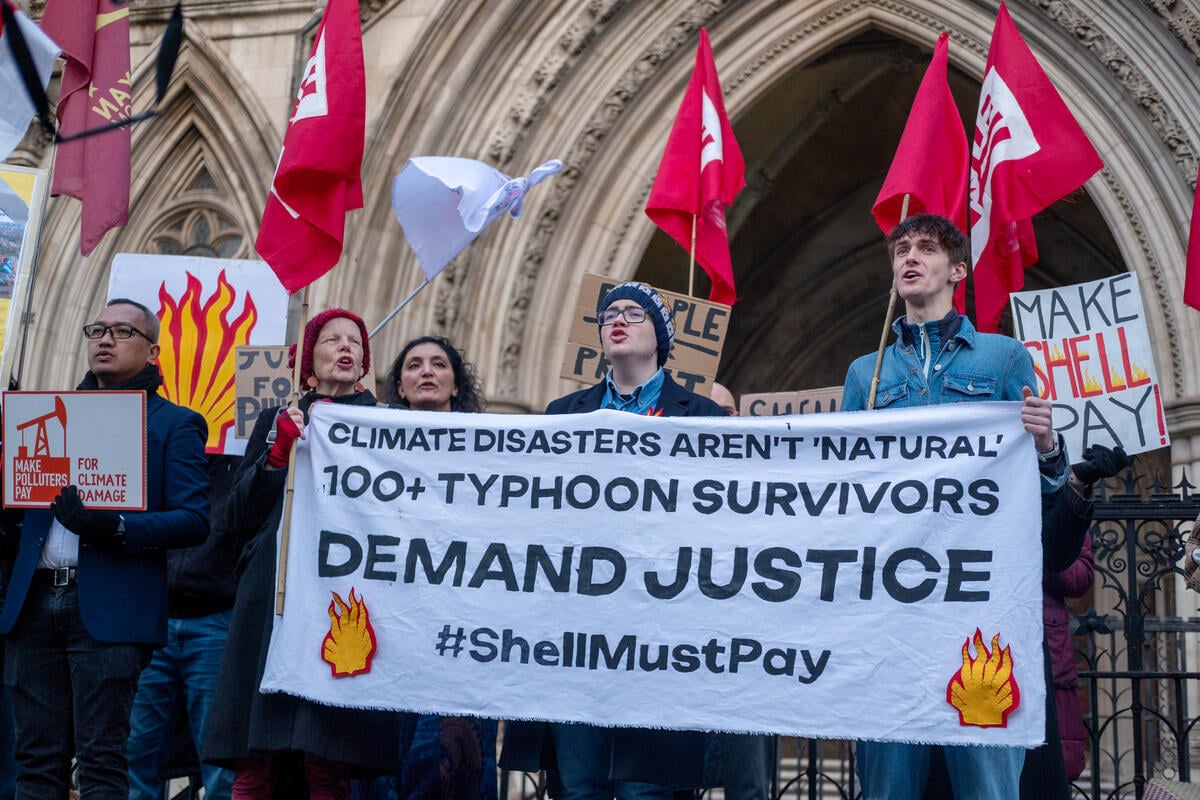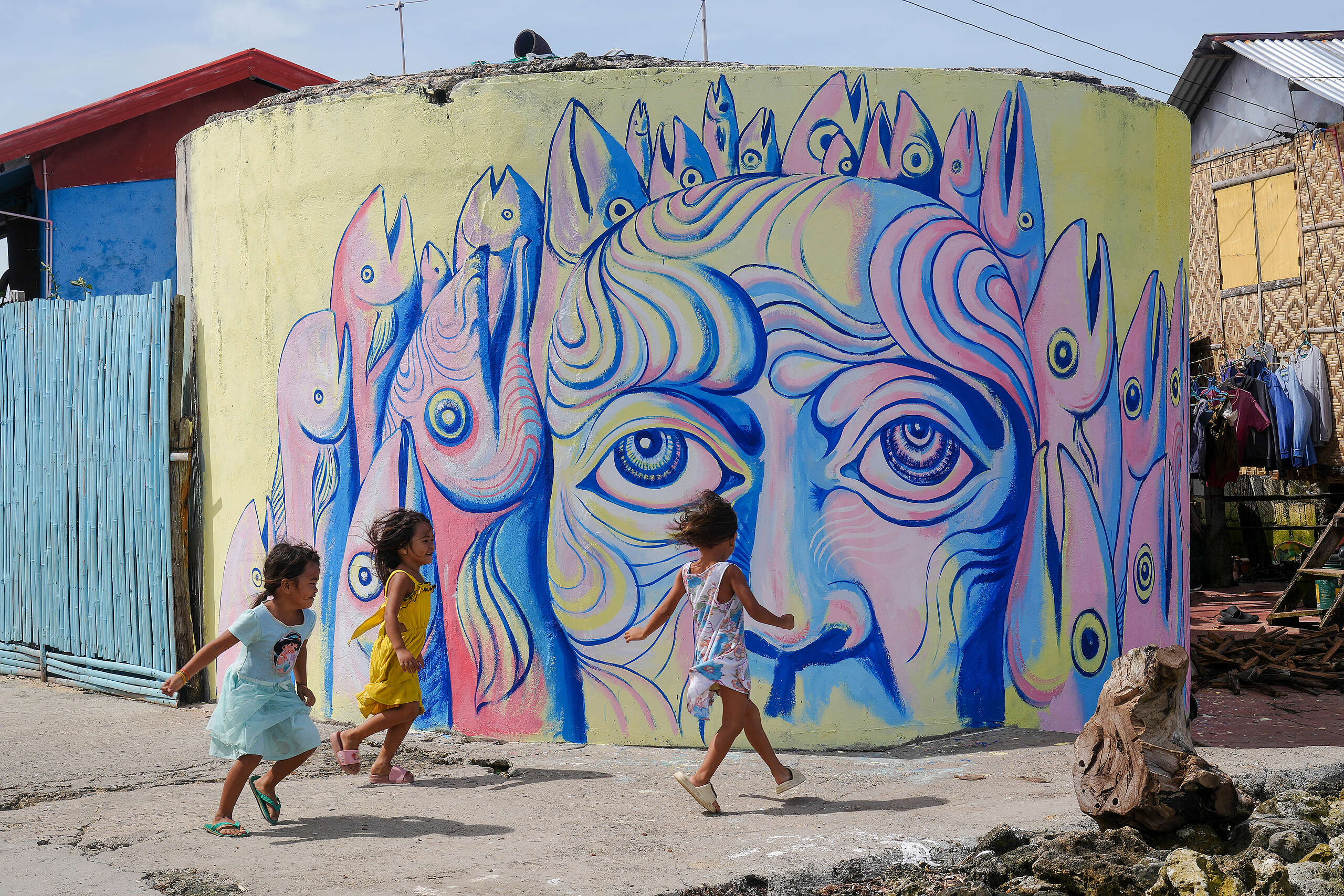Extreme rising sea levels and flooding is a threat to coastal cities. Greenpeace East Asia selected seven cities in Asia (Manila, Bangkok, Hong Kong, Jakarta, Seoul, Taipei, and Tokyo) that are economic centers and are located on or close to the coast to analyze how their gross domestic product (GDP) could potentially be impacted by extreme coastal flooding in 2030 with the business-as-usual (BAU) carbon-emission scenario, also called the RCP8.5 scenario. The analysis suggests how the climate crisis may affect the economies of the cities analysed in less than one decade unless we act immediately to achieve a rapid reduction in greenhouse gas emissions.
Related Posts
-

Greenpeace joins calls for high ranking officials involved in flood control scandal to step down
As Filipinos mark the 40th anniversary of the EDSA People Power, Greenpeace Philippines joined thousands of Filipinos and fellow environmentalists demanding the investigation, prosecution, and dismissal of high ranking officials involved in the flood control scandal.
-

Shell’s $18.5 billion profits underscore the cost paid by Philippine typhoon survivors
The profit announcement comes less than two months after 103 Filipino survivors of Super Typhoon Odette filed a landmark case against Shell in UK courts, citing research linking fossil fuel emissions to the increasing likelihood of devastating storms in the Philippines.
-

Art as resistance: Climate survivors, Leeroy New, unveil Odette anniversary installation in Bohol
Greenpeace Philippines joins today’s mass mobilizations in Luneta to demand full accountability for the massive flood control corruption scandal and anomalous climate -tagged projects that siphoned off life-saving public funds.
